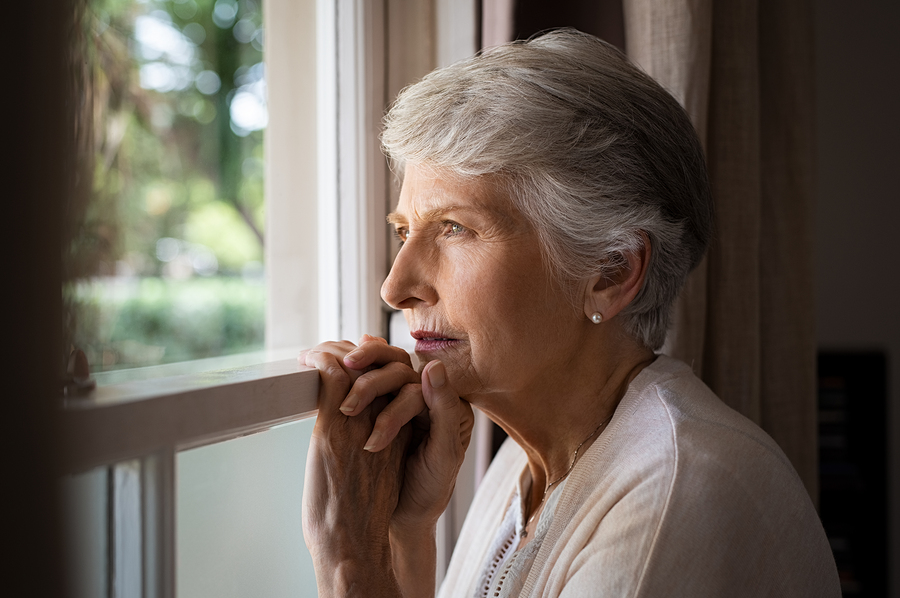Do you feel lonely? You’re not alone…
With research suggesting that loneliness is becoming as big a public issue as obesity and smoking we look at ways to make new connections
The Office for National Statistics back in 2014 labelled Britain as the loneliness capital of Europe and things have not improved since then. How many of us know our neighbours or feel we have ‘real’ friends whom we could call on when the chips are down?
Dr Mark Winwood, Director of Psychological Services at AXA PPP Healthcare tells us “our physical and mental wellbeing can be affected by loneliness. It is a real issue for many people. It is important to take steps to build new connections with others as it really can help to improve our health.”
The physical impact of loneliness
Studies undertaken at the University of Chicago and the University of California discovered that there are physiological changes triggered by the experience of loneliness – similar to those experienced when we feel threatened.
Not just the older generation
People tend to associate loneliness with the older generation however although Age UK report that over 1 million older people have told them they are always or often feel lonely it affects younger people too.
The 2014 research found that British adults (aged 18 to 24) are four times as likely to feel consistently lonely compared with those aged 70 years or above.
In addition, a study carried out in 2015 with Netmums worryingly showed that many new mums felt socially isolated.
Read here for more information on depression in young adults
What is the difference between loneliness and social isolation?
Dr Winwood explains “loneliness and social isolation are two distinct things. We can feel lonely even though we may be surrounded by people or we can be socially isolated but may not feel lonely.”
Loneliness is an emotional state of being whereas social isolation is an objective concept that denotes the number of social interactions we may have. Both are linked and both can result in poor mental health.
How to combat loneliness
Here we have set out a few tips which may go some way to helping you to find your path to combat loneliness:
- Join a class – try and find a group or class you are interested in attending. This way you are likely to find people with similar interests with whom you can make friends. Be it an art class, exercise class, walking group or choir – it can be an ideal place to start to socialise and give your mental health a boost. The internet can play its part too as there you will find a community group for almost any interest you could mention.
- Open up more – it may be that you already have a large circle of friends but still feel a little on the outside. Try and deepen your connection with one or two friends by opening up more – tell them how you feel and let them into your life.
- No need to try and keep up – don’t compare yourself with others. Not everyone’s life is all roses; people only share what they want others to see (especially on social media) so don’t feel that everyone else is having a great time and you’re the only one who isn’t. Try not to form unrealistic expectations about life and friendships as comparing yourself can lead to you feeling inadequate, isolated and alone.
- Use the internet – it is easy to stay in contact with loved ones online. Try having a chat using Skype or see photos on Facebook or exchange emails to keep up to date with the latest news. And don’t forget the phone too – it is good to talk!
- Helping others – can increase the strength of relationships and can help us feel psychologically more positive. You may be able to find a volunteering role that will use your skills and experience. Volunteering is a great way to meet people with the added bonus of giving something back to your community. By volunteering you will feel involved and needed which will be good for your mental health too.
- Don’t be afraid – it is scary to reach out to people and initiate connections but try not to worry as the person you start to talk to may be feeling lonely too.
- Don’t rush – if you are anxious about throwing yourself in the deep end then try going to something where you are a spectator at first (like a sports event) or do a class where you can busy yourself with an activity so you won’t feel that you have to introduce yourself until you feel ready and comfortable to do so.
Feel free to participate in our Forums, Chat, Showcase and Speakers Corner with the Silversurfers Community
Disclaimer
All content on Silversurfers.com is provided for general information only, and should not be treated at all as a substitute for the medical advice of your own doctor or any other health care professional. Silversurfers will not be responsible or liable for any diagnosis made by a user based on the content on www.silversurfers.com and we are also not liable for the content of any external websites or links from or to Silversurfers to any other websites. Please always consult your own doctor if you’re in any way concerned about any aspect of your health
Melina - Assistant Editor
Latest posts by Melina - Assistant Editor (see all)
- 4 Homemade Sweet Treats for Easter - April 10, 2025
- Bowel Cancer Awareness Month : know the signs - April 5, 2025
- Playground Memories - March 10, 2025
- Banana bread with SunGold kiwis - February 20, 2025
- A tribute to Bob Marley - February 4, 2025




















